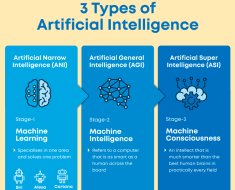Large language models (LLM’s) are software programs that are also known as a form of “artificial intelligence” (AI); LLM’s are specifically an aspect of generative AI. This wiki area is for learning, teaching, and research related to LLM’s.

Here are some learning and teaching oriented discussion questions related to large language models. Humans can use language and mental effort to explore these ideas collaboratively, or some of these could be used as prompts to see how an LLM might respond.
- How might large language models affect learning and research. Will LLM’s eventually seen like calculators are in math and sciences now? But for everything (all subjects/topics, including math, physics, ethics, biology, psychology, chemistry, engineering, art)?
- What are some ethical considerations related to large language models that should be considered?
- What are some pros and cons to open source large language models? Will open source LLM’s likely become more advanced the propriety LLM’s eventually? What do you think?
- How can large language models help to advance and accelerate technological automation in ways that will benefit all of humanity?
- In what ways can large language models help programmers to code?
- Can music be thought of a language within the realm of large language models?
- What is differentiable computing and how does differentiable computing relate to large language models?
- How can teachers utilize large language models to help accelerate student learning and to help students learn more efficiently?
These are original prompt ideas regarding ways to learn about large language models, and also to explore using LLM’s for learning, teaching, and research. Input these into your preferred LLM (without quotes) to see what results are generated. LLM’s might produce interesting or useful answers in response to these prompts. Some of these prompts may be interesting or useful for discussions among and between humans.
- “Describe to me how large language models can be utilized for learning, teaching, and research. Do this in an about 200 word two paragraph mini essay. Explain it to me like I am a freshman in community college.”
- “Give me a list of 12 ways that large language models can be utilized for learning, teaching, and research.”
- “How can LLM’s be utilized to accelerate the pace of research and scientific discovery?”
- “What are some ethical considerations related to large language models that should be considered?”
- “What are some pros and cons to open source large language models? Will open source LLM’s likely become more advanced the propriety LLM’s eventually? What do you think?”
- “What are some project ideas to integrate large language models in with humanoid robots, and/or other sorts of robots? Please give me 15 project ideas that can be relatively simple or extremely complex.”
- “Please search the Internet if possible. In what ways have university professors and academic researchers been using large language models in the last year? Please respond in list form.”
- “In what ways can large language models help programmers to code? Please provide me 8 examples and respond in list form.”
- “Can music be thought of a language within the realm of large language models?”
- “What is differentiable computing and how does differentiable computing relate to large language models?”
- “How can one fine tune an open source large language model?”
- “What are some popular state of the art open source large language models. Please search the internet as helpful and respond to me in list form.”
- “Please give me a list of important terminology that I should be aware of when working with and training open source large language models. Please be comprehensive. Please respond in list form. And please search the internet as helpful.”
- “What sort of hardware should I utilize to run the most competent open source large language models that I want to utilize for learning, teaching, and research? Please search the internet as helpful.”
- “How can teachers utilize large language models to help accelerate student learning and to help students learn more efficiently? Please respond in list form.”
- “How can researchers utilize large language models to create theories, hypothesis, and to formulate potential research studies? Please respond in short paragraphs, but in list form.”
Readings and learning media[edit | edit source]
External[edit | edit source]
Videos[edit | edit source]
Wikipedia[edit | edit source]


